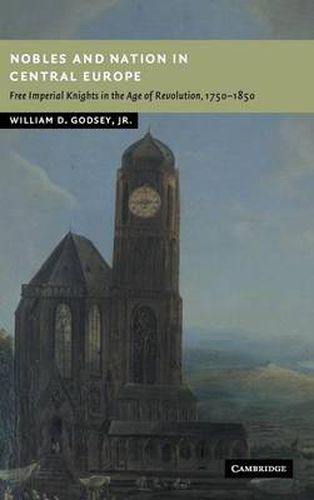Readings Newsletter
Become a Readings Member to make your shopping experience even easier.
Sign in or sign up for free!
You’re not far away from qualifying for FREE standard shipping within Australia
You’ve qualified for FREE standard shipping within Australia
The cart is loading…






This is a study of Central European nobles in revolution. As one of Germany’s richest, most insular and most autonomous nobilities, the Free Knights in Electoral Mainz represented the early modern noble ideal of pure bloodlines and cosmopolitan loyalties in the old society of orders. But this world came to an end with the outbreak of the revolutionary wars in 1792. Quite apart from the social, economic and political dislocations and loss, the era from 1789 to 1815 also meant a cultural reorientation for the nobility. William D. Godsey, Jr. here explores how nobles in post-revolutionary Germany gradually abandoned their old self-understanding and assimilated with the new cultural ‘nation’ while aristocrats in the Habsburg Empire, which had taken in many emigres from Mainz, moved instead towards supranationalism. This is a major contribution to debates about the relationship between identity, cultural nationalism, supranationalism and religion in Germany and the Habsburg Empire.
$9.00 standard shipping within Australia
FREE standard shipping within Australia for orders over $100.00
Express & International shipping calculated at checkout
This is a study of Central European nobles in revolution. As one of Germany’s richest, most insular and most autonomous nobilities, the Free Knights in Electoral Mainz represented the early modern noble ideal of pure bloodlines and cosmopolitan loyalties in the old society of orders. But this world came to an end with the outbreak of the revolutionary wars in 1792. Quite apart from the social, economic and political dislocations and loss, the era from 1789 to 1815 also meant a cultural reorientation for the nobility. William D. Godsey, Jr. here explores how nobles in post-revolutionary Germany gradually abandoned their old self-understanding and assimilated with the new cultural ‘nation’ while aristocrats in the Habsburg Empire, which had taken in many emigres from Mainz, moved instead towards supranationalism. This is a major contribution to debates about the relationship between identity, cultural nationalism, supranationalism and religion in Germany and the Habsburg Empire.